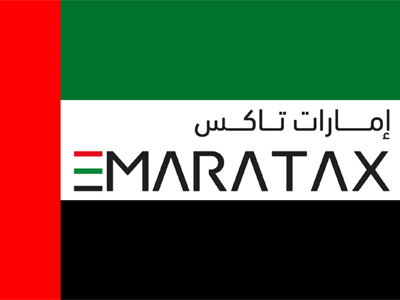CORPORATE TAX: A COMPLETE GUIDE
Everything you need to know about UAE corporate tax (rates, exemptions, compliance, strategies) — 2025 edition.
Introduction
The UAE’s introduction of a federal corporate tax marks a pivotal change in its once almost tax-free business environment. Since 1 June 2023, companies whose financial year begins on or after that date must navigate new rules, filings, and compliance demands. This guide will take you step-by-step through the corporate tax journey: who it applies to, how to calculate it, available exemptions, deadlines, strategies, and pitfalls to avoid.
1. Corporate Tax in UAE: Overview & Rationale
The corporate tax regime is governed by Federal Decree-Law No. 47 of 2022 and guidelines from the Ministry of Finance and the Federal Tax Authority (FTA). It applies for tax periods beginning on or after 1 June 2023. Objectives include diversifying UAE revenue, aligning with international tax standards, and fostering financial transparency.
2. Who Must Pay Corporate Tax?
Taxable persons generally include juridical persons incorporated in the UAE, foreign entities with a permanent establishment, and certain licensed natural persons. Exempt categories include government entities, public benefit organizations, qualifying free zone persons, and some extractive industries.
3. Corporate Tax Rates & Thresholds

UAE corporate tax: 0%, 9%, and 15% from 2025.
0% on taxable income up to AED 375,000. 9% on taxable income above AED 375,000. Qualifying Free Zone Persons may benefit from 0% on qualifying income, subject to conditions. From January 2025, large multinational groups will also face a 15% minimum top-up tax under OECD rules.
4. How Taxable Income is Computed
Taxable income starts from accounting profit and is adjusted for disallowed expenses, allowable deductions, capital allowances, interest limitations, and loss carryforwards. Adjustments also apply for exempt income, qualifying reliefs, and transfer pricing rules.
5. Exemptions, Reliefs & Special Regimes
Includes Qualifying Free Zone Persons (subject to economic substance and qualifying income tests), Small Business Relief, and exemptions for specific entities such as public benefit organizations and government-related entities.
6. Registration, Filing & Compliance Requirements

Register on EmaraTax within 3 months; file returns within 9 months to avoid penalties.
Businesses must register via the FTA’s EmaraTax portal within 3 months of becoming liable. Tax returns are due within 9 months of the end of the financial year. Penalties apply for late registration, filing delays, and underpayment.
7. Transfer Pricing & Intercompany Transactions
UAE requires compliance with OECD-aligned transfer pricing rules, including the arm’s length principle. Certain businesses must prepare and submit Master File, Local File, and disclosure forms for related party transactions.
8. Corporate Tax Planning Strategies
Strategies include entity structuring (mainland vs free zone), maximizing allowable deductions, managing financing within interest limits, utilizing carried forward losses, and ensuring proper transfer pricing documentation.
9. Impacts by Business Type & Industry
Free Zone entities must carefully maintain qualifying status. SMEs benefit from the 0% band but should plan for growth. Multinationals must prepare for the 15% top-up tax. Cross-border operators should monitor double-taxation treaty implications.
10. Recent Updates & What’s Coming
FTA has issued multiple clarifications on Free Zone regimes, compliance, and reporting. From 2025, a domestic minimum tax applies to large multinationals. Rules continue to evolve, and businesses must stay alert to new guidance.
11. Frequently Asked Questions (FAQs)
What is the corporate tax rate?
0% up to AED 375,000; 9% above that.
Do Free Zone companies always get 0%?
Only if they meet qualifying conditions.
When to register?
Within 3 months of becoming liable.
Filing deadline?
9 months after year-end.
Losses carried forward?
Yes, under current rules.
Minimum tax for multinationals?
15% from 2025 onward.
12. Next Steps and How We Can Help
We assist with tax registration, structuring advice, transfer pricing documentation, tax planning, and audit support. Contact us for a tailored consultation to stay compliant and optimize your tax position.
Consult with an Expert
Still have questions? Our team is here to help

Innovation
Fresh, creative solutions.

Integrity
Honesty and transparency.

Excellence
Top-notch services.

FOLLOW US
CALL US
+971 4 395 2630
EMAIL US
[email protected]
LOCATION
Office 406, Dubai Supreme Court Complex,
Dubai, United Arab Emirates
COMPANY
CUSTOMER CARE
LEGAL
Copyright 2025. MP Elites Consulting LLC. Dubai, UAE. All Rights Reserved.
